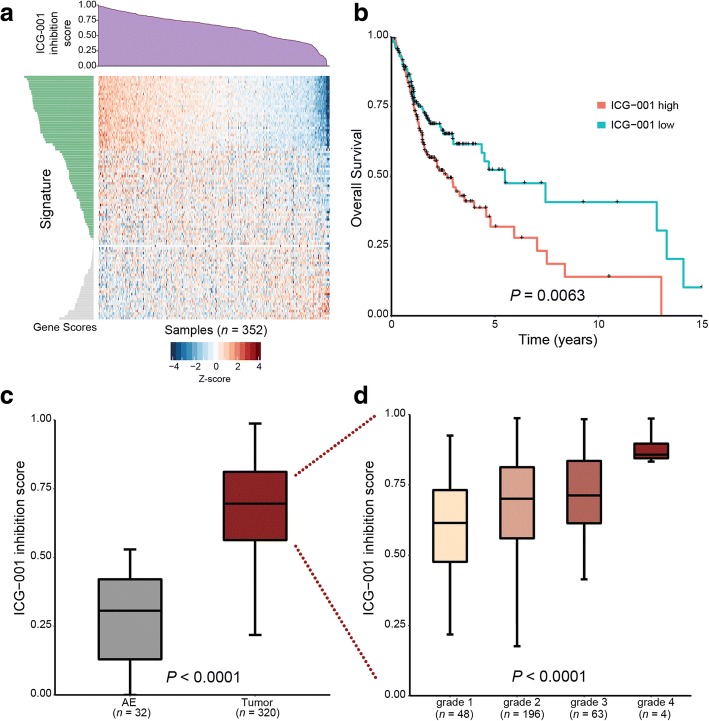Fig. 7.
Transcriptional ICG-001 inhibition signature is associated with clinical outcomes in primary human OSCCs. a Stratification of human OSCC samples using the ICG-001 inhibition gene expression signature from HNSCC cells. The TCGA OSCC RNASeq dataset (n = 352) was projected onto a core set of genes downregulated by ICG-001 in both HSC-3 and CAL27 cells (n = 104 genes) using ASSIGN. Heatmap of the signature expression profile (displayed as row z scores of log2 expression values per gene) is shown, with the estimated ICG-001 inhibition scores displayed in the barplot above (purple). b Overall patient survival curves with respect to ICG-001 inhibition score. OSCC patients with survival information (n = 318) were first divided into two groups: ICG-001 high and low, n = 159 per group, based on the median ICG-001 inhibition scores and compared for their overall survival outcomes. Samples with higher ICG-001 inhibition scores had a lower overall survival, with median survival estimates of 2.7 and 5.48 years in the high and low groups, respectively. Statistical significance of survival difference between groups was determined using a log-rank test c ICG-001 inhibition scores with respect to OSCC tumor status. OSCC samples (n = 320) have significantly higher ICG-001 inhibition scores than adjacent normal epithelia (AE) (n = 32). Statistical significance was determined using an unpaired t test comparing the two groups. d OSCC samples with known tumor grade status (n = 311) were used to analyze the association of ICG-001 inhibition scores and tumor progression. A significant positive association was observed between ICG-001 inhibition scores and increasing tumor grade (see “Methods”)

